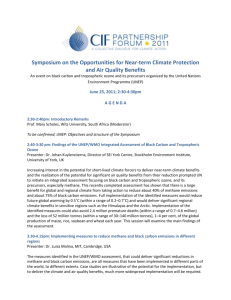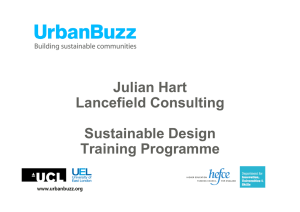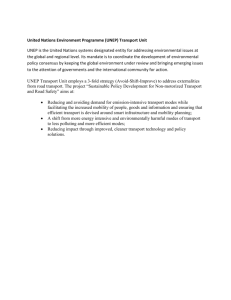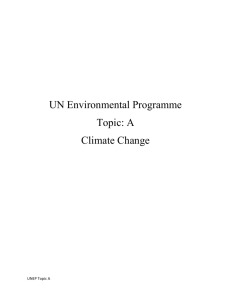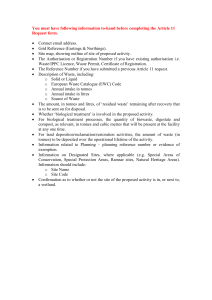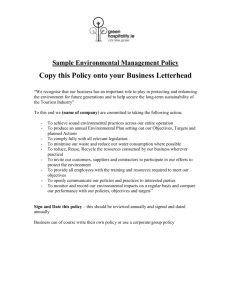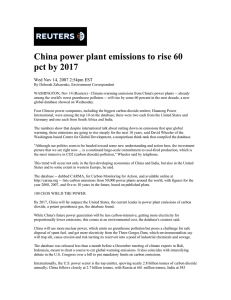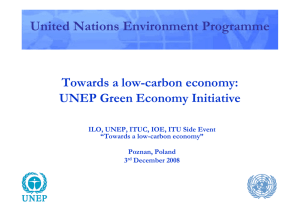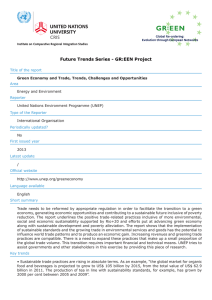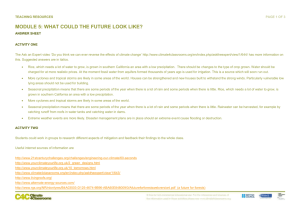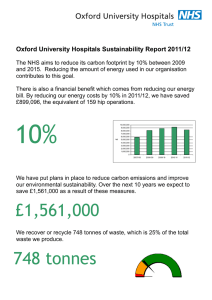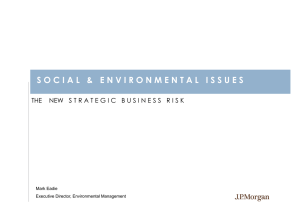Lomax
advertisement
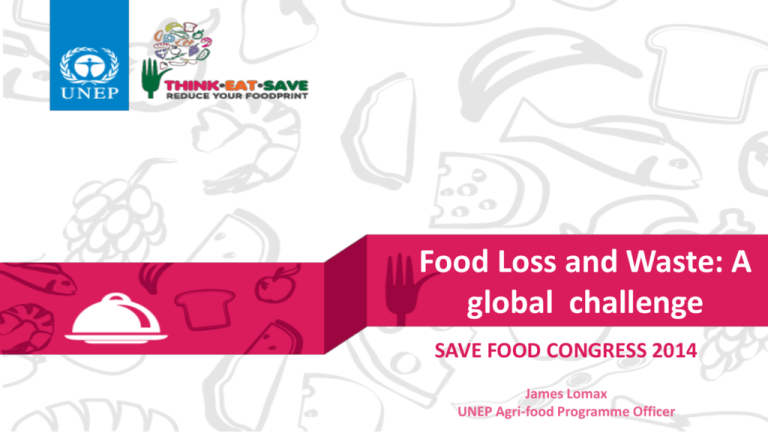
Food Loss and Waste: A global challenge SAVE FOOD CONGRESS 2014 James Lomax UNEP Agri-food Programme Officer 3°C or more 60% of ecosystems are now damaged or being used unsustainably rise in temperature by the end of the century, due to doubling of GHG emissions by 2050 , under BAU. 2 to 3 billion additional middle class consumers by 2030 140 billion tonnes of global extraction of natural resources per year if consumption stays at current developed country rates 2 Beyond the Earth Limits Today humanity uses the equivalent of 1.5 planets. Moderate UN scenarios suggest that if current population and consumption trends continue, by the 2030s, we will need the equivalent of two Earths. We have only one! Source: Global Footprint Network, 2012 Magnitude of Food Loss and Waste • Roughly 1/3 of the food produced in the world for human consumption every year about 1.3 billion tonnes - gets lost or wasted. • Food losses and waste amount to roughly US$ 680 billion in industrialized countries and US$ 310 billion in developing countries. • Food waste: – 24% of global food supply by energy content (kcal) – 32% of global food supply by weight • Global food production uses 25% of all habitable land and is responsible for 70% of fresh water consumption, 80% of deforestation, and 30% of greenhouse gas emissions. It is the largest single driver of biodiversity loss and land-use change. World of Waste • • • US: around 40 % of all food goes to waste each year. The cost is estimated at $195 billion per year (including $40 billion for households).[source: NDRC] The food currently wasted in Europe could feed 200 million people. Research in 2008 found that Mexico City produces 5,100 tons of organic waste daily. International actions and processes relevant for food loss and waste The Campaign: Think.Eat.Save. • Campaign of the Save Food Initiative • A partnership between UNEP, FAO and Messe Düsseldorf, and in support of the UN Secretary-General’s Zero Hunger Challenge •Seeks to: galvanize widespread global, regional and national actions catalyze more sectors of society to be aware and to act, including through exchange of inspiring ideas and projects between those players already involved and new ones that are likely to come on board. Please join us to Think Eat Save! Visit: www.thinkeatsave.org Thank you Please join us to Think Eat Save! Visit: www.thinkeatsave.org Thank you
